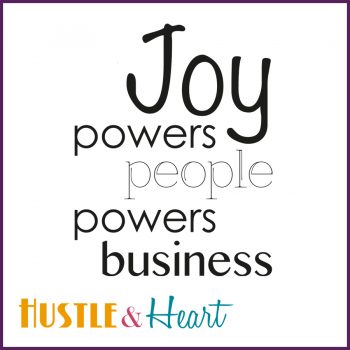If you are a teacher, coach or consultant, then you’re in the motivation business. If you work closely with people and need them to engage, respond and enact something in order to get results from working with you, then you’re in the motivation business. If you need people to change their behavior, excavating patterns of thinking and doing that may be decades old, then you’re in the motivation business.
And being in the motivation business means you need to take your own motivation seriously. Acting enthusiastic only takes you so far.
Here’s how to keep your attitude upbeat, your perspective fresh and naturally enthusiastic, so that you can be the best teacher, coach or consultant possible.
Know your kryptonite
One quote that I particularly despise is, “how you do anything is how you do everything.” It’s a particularly 21st-century philosophy that justifies over-thinking and over-work.
We are complicated creatures. Some things we truly, madly, deeply want to do, but don’t. So knowing your kryptonite – which areas in your business and life that you procrastinate, sabotage, become perfectionist or pessimistic about, or play the martyr – means you can build strategies to avoid this.
Use a coach and accountability system
After wasting several thousands of dollars on gym memberships that I didn’t use, I engaged a personal trainer. Twice a week, every week, I work out with weights under the guidance of my trainer.
While my profession is business coaching, there’s only so far that you can coach yourself. Business coaching is good for blind spots and short-cuts so I engage my own business coach too. Yes, even though I’m a business coach. Because, in the same way that I’m unlikely to pick up a 10kg weight for an overhead press and push through to 15 reps without my trainer there to urge me on, I’m unlikely to make much progress on goals that I see as difficult or scary. Yes, even when I really, really want to. Because I’m human.
Most people are far less likely to break commitments made to others than commitments made to themselves, so use this! Partner up with an accountability buddy (or two) and get a system in place that means you show up and do the (harder) work. Because when you’re self-employed, you can procrastinate from important work with less important work.
My business coach and personal trainer each push me to go further than I would do alone. And having them as accountability partners means I show up, do the work, and progress.
 Prioritise joy
Prioritise joy
One of the key values of my Hustle & Heart business is joy. Joy isn’t just about feeling good. Its impact is much broader and far-reaching.
Especially as a soloist, but also as a CEO, your attitude – powered by joy – has a direct effect on your profits.
Joy is far more accessible than most people appreciate. According to a research study by Shelley Gable and Jonathan Haidt, we have three times more positive experiences every day than we have negative.
Yet we don’t fully experience and expand these moments of joy because of two main tendencies: the negativity bias (our innate tendency to give more weight to the negative) and habituation (which causes us to take common positive experiences for granted). (Source.)
Prioritise daily accessible joy as you would brushing your teeth, showering (a cause for joy!), or exercise. Practicing gratitude helps counter our habituation tendency by mindfully becoming more aware of our joyful moments. Combine these two things with curiousity and experimentation – small, every day, accessible new things that add further moments to your joy bank.
Prioritise self-care
I’m excellent at self-care which causes some controversy within my circle of family and friends. I regularly, inadvertently provoke comments from people because prioritising your needs is not something we are taught to do.
For many, prioritising self-care is a long process of unlearning, dismantling old beliefs and habits, and disassociating with people who want you to continue to put their needs above your own.
Self-care when self-employed is exceptionally important – I cannot emphasise this enough. Especially when going through periods of rapid growth and change, where you will be out of your comfort zone and taking more risks, more often, self-care will keep you on an emotional even keel and stop you from burning out.
My self-care practices include reading for pleasure (not business), getting enough sleep and sleeping in on weekends, engaging a personal trainer, getting regular massages and facials, and travel.
Self-care can be really simple and it doesn’t need to be expensive. I also love going out for a coffee by myself, taking a walk, drinking a cup of coffee with the papers, and calling up special friends for mind-expanding conversations. Whatever floats your boat and leaves you feeling better and more rejuvenated.
Motivation downfalls
As we continually uncover what motivates our clients so that we can empower them to progress, we need to learn what motivates ourselves.
We are also motivated by doing the best job possible, and when you’re in the motivation business, sometimes this doesn’t work out. Because no matter how good a teacher, coach or consultant you are, sometimes you are unable to sufficiently motivate people to make the change they say they want to make.
This is another reason why joy and self-care are so important – because we need to understand what is outside of our control, learn not to take things too personally, and recognise and deal with countertransference. Motivating others has no clear script. It’s always a work in progress, just like motivation itself.





